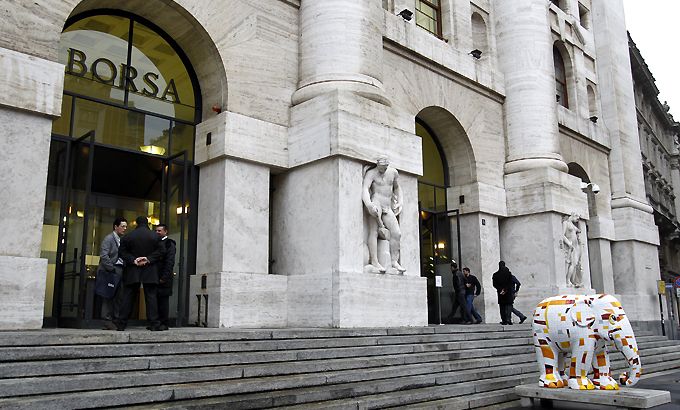
The politics of European technocrats
Have Europe’s technocrat-led governments really improved the economy or was it merely a quick-fix?
They have impressive resumes and impeccable economic credentials but no popular mandate to govern.
|
“One of the things that Monti hasn’t done is he hasn’t tackled tax evasion, which is massive in Italy. He hasn’t tackled corruption and he hasn’t tackled organised crime, all of which are not just serious problems, they’re serious economic problems …. And people know that one of the reasons why they’re having economic difficulties is that nobody is tackling this problem.“ – Andrea Teti, a lecturer in Aberdeen University |
So-called technocrat prime ministers are supposed to rise above the political bickering and drive through unpopular policies at a time of national needs.
Unelected experts were called in to rescue Greece and Italy, as the countries teetered on the brink of financial collapse.
But for Europe’s most indebted countries the plan has not worked out.
Mario Monti, the Italian prime minister, has announced that he will resign, saying that he can no longer govern after the party of his predecessor, Silvio Berlusconi, withdrew its support.
The decision has thrown Italy into yet more political turmoil. The country is already mired in a recession, has a huge public debt and is about to vote on a crucial budget.
On top of all this Berlusconi, who resigned in disgrace as prime minister just last year, has indicated that he will run for a fourth term in office.
|
“More needs to be done to open up the labour market, because something has been done for the private sector but nothing has been done for the public sector. Also [the] business environment needs to be improved in Italy because several studies have shown that Italian businesses are [among] those who pay the highest taxes in Europe.“ – Vincenzo Scarpetta, a researcher for Open Europe |
And the man charged with tackling with Greece’s financial crisis was Lucas Papademos, who succeeded big-name politician George Papandreou, a third-generation prime minister who unlike Italy’s Monti, imposed strict austerity measures ahead of an emergency government.
The Greeks did not like austerity any more than the Italians did, and after less than six months in office Papademos bowed to political and public pressure and resigned.
This is an inevitable conclusion in the eyes of opponents who criticise the appointments of such unelected experts as undemocratic and just a short-term fix.
So what exactly is a technocrat? And why do countries appoint technocratic governments?
Inside Story, with presenter Dareen Abughaida, is joined by guests: Vincenzo Scarpetta, a researcher for Open Europe; Ettore Greco, the director of the Institute of International Affairs; and Andrea Teti, a lecturer in Aberdeen University.
|
“Italy is in a better position financially … but certainly the Monti government was not able to introduce measures capable of stimulating growth …. Berlusconi has signalled very clearly that he will campaign on a very anti-EU, anti-German platform and also denouncing in part the austerity measures the inability of the Monti government to re-launch the growth etc.” Ettore Greco, the director of the Institute of International Affairs |
Italy’s economy in the year under PM Monti:
- Nearly 11.1 per cent of the workforce is unemployed, up from just under nine per cent when Monti took over
- Economic growth contracted 2.4 percent in the third quarter of 2012, compared with the same quarter last year
- The debt to gross domestic product ratio remains the same at about 120 per cent